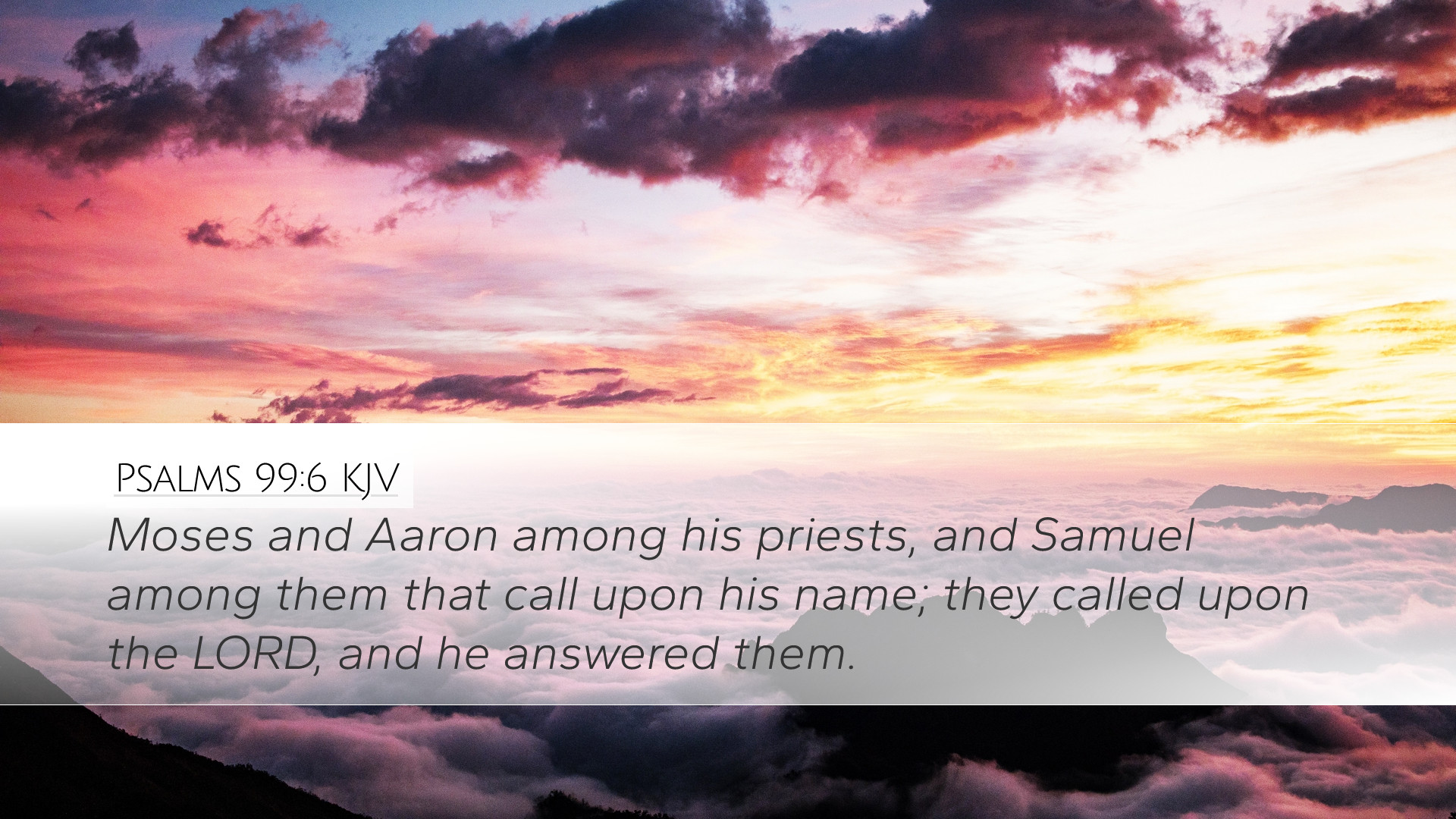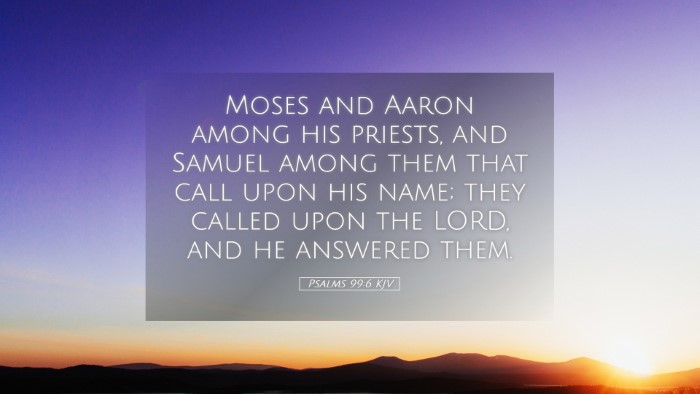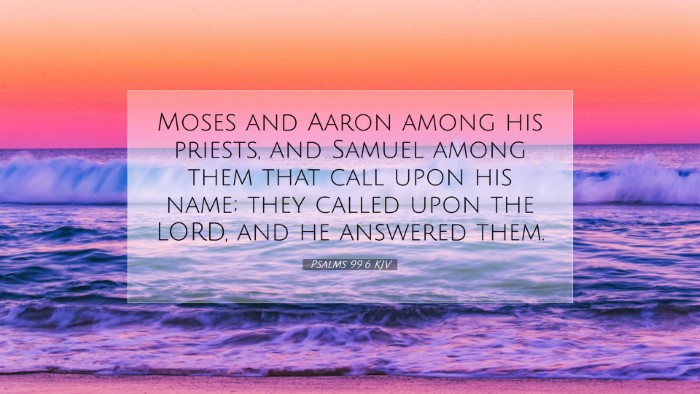Commentary on Psalms 99:6
Psalms 99:6 states, "Moses and Aaron were among his priests, and Samuel was among them that called upon his name: they called upon the LORD, and he answered them." This verse emphasizes the faithfulness of God in answering the prayers of His chosen servants and highlights the sacred roles played by these key figures in Israel's history.
1. Contextual Analysis
This verse appears within a context that celebrates the holiness and sovereignty of God. The psalmist calls to remembrance the significant leaders of Israel who interceded with God on behalf of the people. This highlights a progression from establishment in the Law through Moses and Aaron to the prophetic declaration represented by Samuel.
2. Significance of the Priests
- Moses and Aaron: These are fundamental figures in the Exodus narrative who established the priestly system and the worship of Yahweh. Moses is seen as the mediator of God’s law, whereas Aaron, his brother, served as the first high priest, representing the ongoing commitment to God’s covenant.
- Samuel: Samuel represents the prophetic order and the transition to monarchy in Israel. His role in calling upon the Lord showcases a personal and communal aspect of intercession, urging God's responses to the needs of His people.
3. The Nature of Prayer
Each of these figures exemplifies powerful aspects of prayer. Their intercessory prayer encompasses elements of faith and dependence on God. The psalm teaches that prayer is not just a ritual act but a heartfelt communion with God that results in His active engagement with His people.
3.1. The Role of Faith
The faith of Moses, Aaron, and Samuel serves as a foundational aspect of their appeals to God. Their experiences compel both personal and communal trust in God’s character and ability to respond. The acknowledgment of their faith sets an example for believers today to rely on God in prayer.
3.2. Divine Response
The assurance that “he answered them” affirms God’s active involvement in the world. This reflects a relational aspect of prayer—believers can expect that God hears and responds. Thus, those engaged in study and pastoral care can encourage congregations with the knowledge that God answers faithful prayer.
4. Theological Implications
This verse leads to several theological implications concerning God’s holiness, the efficacy of prayer, and the importance of leadership in invoking divine favor.
4.1. God’s Holiness
In the context of the previous verses in this Psalm, one sees the emphasis on God’s holiness (Psalms 99:1-5). His response to the prayers of Moses, Aaron, and Samuel reinforces the idea that God's interactions with humanity arise from His holiness. Understanding His holiness is crucial for the proper approach to prayer and worship.
4.2. Leadership and Intercession
The roles of Moses, Aaron, and Samuel also highlight the weight of leadership within faith communities. Pastoral leaders are called to intercede and guide, demonstrating the importance of their relationship with God. Their faithfulness can impact the spiritual welfare of those they lead.
5. Practical Applications
For pastors and theologians, this verse encourages a few practical approaches:
- Encouragement of Prayer: Communicate the necessity and power of prayer in the life of believers, drawing from the examples of Moses, Aaron, and Samuel.
- Leadership Responsibility: Recognize the calling of leaders to intercede and model a prayerful life, inviting others to do the same.
- Emphasizing God’s Response: Teach congregations to expect God’s responses in their prayer lives, reinforcing their faith in His character.
6. Conclusion
Psalms 99:6 serves as a powerful reminder of God's faithfulness and the importance of prayerful intercession in the lives of His leaders. For pastors, students, theologians, and scholars, this verse acts as both an encouragement and a challenge to engage deeply with God in prayer, promote communal intercession, and uphold the sanctity of God's calling on their lives and the lives of others.


